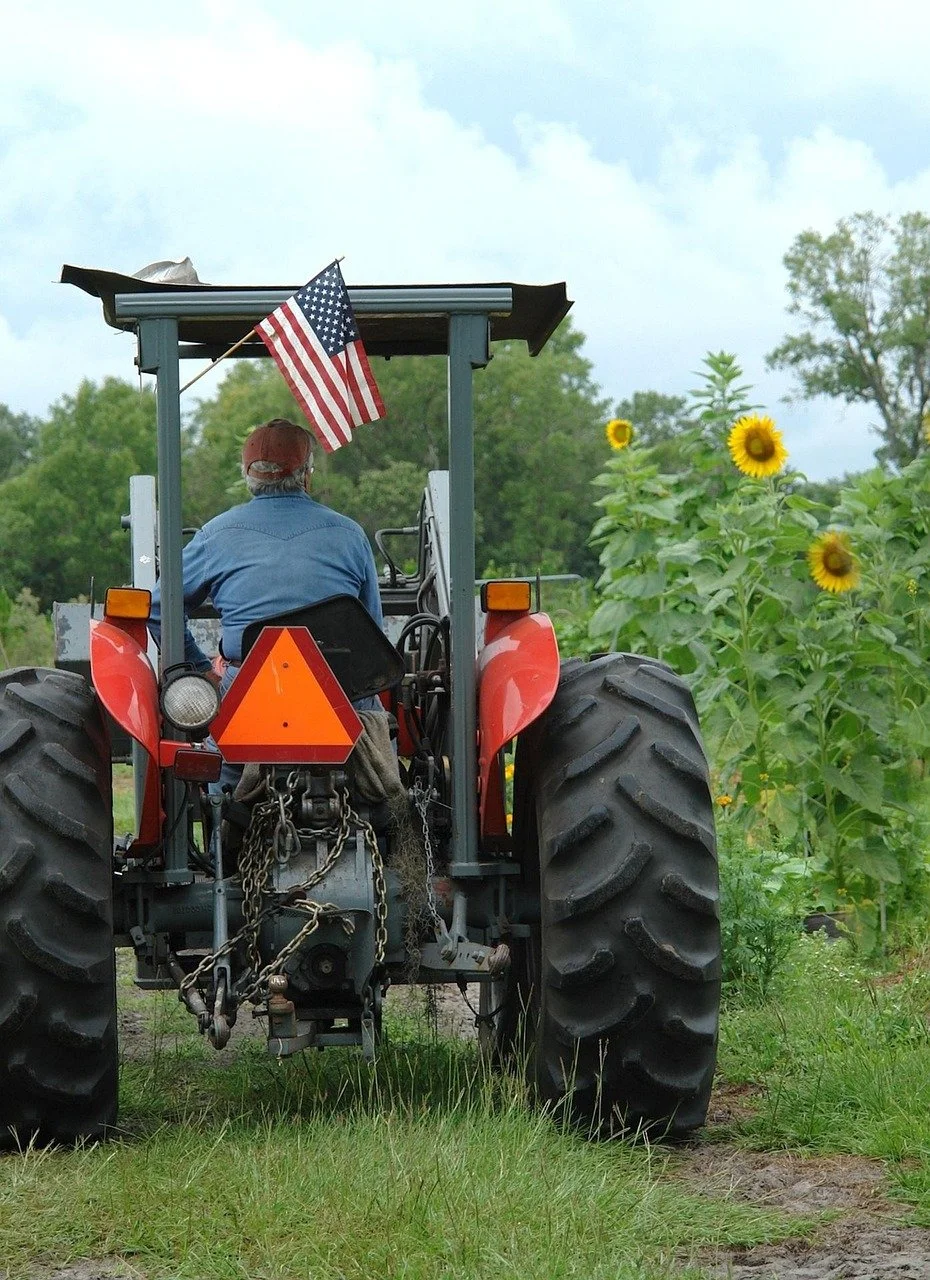
The Rural Review
An online journal produced in conjunction with the Rural Reconciliation Project.
The Rural Review publishes digests of important academic contributions, program information, blog-style commentary, and periodic roundups of rural items from across academic disciplines and scholarly media.
Contributions from interested authors are welcome. Find our author guidelines here.
Explore Curated Content
Click each box below to direct you to the different content types on this page. The most recent content is listed here, but please click “more” to see the full archive of materials - or other directions listed here.
Featured Content or Highlights of Recent Work
These could be the 3 -5 most recent additions?
In Natural Resource Policy and Collaborative Processes, Crystal M. Callahan and Katherine M. Himes (both Public Policy Research, University of Idaho) advocate for introducing collaborative governance to the natural resource policy process. The authors explore several successful Idaho case studies in which collective governance was utilized to address “wicked problems” plaguing Idaho’s natural resource policy.
In Rural Politics in the United States, authors Trevor E. Brown and Suzanne Mettler (both Government, Cornell University) survey recent literature on rural politics and recommend a broader lens to better understand the impact of place on voters. They discuss the current state of rural politics literature, how to measure place and rurality, the role of public opinion, and recommend a comparative approach for future rural studies.
Summary of Mark Haggarty, Kathryn Bills Walsh, and Kelly Pohl’s evaluation of New Mexico’s Land Grant Public Fund which supports the state's schools, infrastructure, and other services.
Explore the Database
Blurb about the catalog or database, with user interface directions
Most Recent Digests
Digests are very short objective summaries of recent academic or other scholarly contribution related to rural pasts, presents, or futures.
In Natural Resource Policy and Collaborative Processes, Crystal M. Callahan and Katherine M. Himes (both Public Policy Research, University of Idaho) advocate for introducing collaborative governance to the natural resource policy process. The authors explore several successful Idaho case studies in which collective governance was utilized to address “wicked problems” plaguing Idaho’s natural resource policy.
In The Dark Side of the Balloon: Restrictions on Foreign Investment in US Farmland, Sarah Everhart (Delaware Law) argues that legislators should shift their focus from preventing foreign ownership of US farmland to supporting domestic farmers’ access to farmland.
In Rural Politics in the United States, authors Trevor E. Brown and Suzanne Mettler (both Government, Cornell University) survey recent literature on rural politics and recommend a broader lens to better understand the impact of place on voters. They discuss the current state of rural politics literature, how to measure place and rurality, the role of public opinion, and recommend a comparative approach for future rural studies.
Most Recent Commentary
Commentary posts are guest opinions, essays, and other posts from a range of voices (both academic and non-academic) in a short blog-style piece on a topic of interest to our Project; these commentary posts should be informative and advance the wider Rural Reconciliation Project conversation.
Designed to support the work of law professors, scholars, and students working on issues of law and rurality in the US, this guide organizes otherwise disparate rural materials by source type and offers a comprehensive starting point for research. It may also serve as a helpful classroom resource.
For too long, the story of rural America has seemed inevitable: mines closed; farming became unprofitable; rural post offices and train stations shuttered. When read in the passive voice, the declines of rural places and their people just…happened. But considering that the overwhelming majority of the American landscape is rural, how has so much of the country come to be thus marginalized? And if we care about rural communities—and about the cities and suburbs that ostensibly rely on their resources, no matter how invisible that relationship may be today—how can we work towards revitalization?
Over eight chapters, legal scholar and practitioner Ann M. Eisenberg summarizes and systematically dismantles the passive voice at the core of myths about rural decline, dependency, and potential renewal.
Macro-level structural forces, local institutions, race, class, livelihoods, culture, landscapes, and neighborhood dynamics all come together to create something greater than the sum of their parts. It is at this essential intersectional nexus that Amanda McMillan Lequieu’s 2024 book, Who We Are is Where We Are: Making Home in the American Rust Belt, so adeptly advances the conversation on place-based marginalization and struggle. Who We Are identifies this holistic, multi-factor intersection of place, culture, and economic survival as something we all instinctively know, but may still struggle to define: “home.”
Many people have studied eviction, and rightly so: Eviction in America is at a crisis level, with an estimated 2.7 million households facing eviction filings each year. Eviction has an impact on people and communities, with research linking it to job loss, poor physical and mental health outcomes, and all-cause mortality. Eviction can disrupt every aspect of a person’s life.
If you pay attention to public discourse about rural populations, you might have noticed something missing in the aftermath of the 2024 presidential election: think-pieces on rural voters. These think-pieces—musing on rural voters’ motivations, their seemingly disproportionate susceptibility to Donald Trump’s appeal, and their role in deciding the most recent election—were everywhere after the 2016 presidential election that led to Trump’s first term. Even in 2020, after Joe Biden’s victory and evidence of more complexity in rural voting patterns, analysts and pundits seemed eager to assess the role of the rural vote. Yet, rural voters just don’t seem to be top of mind for this round of post-election analysis. Why might that be?
Most Recent Events
Call for Papers - Concentrated Economic Power and Rural Democracy - Interdisciplinary Workshop Hosted by Jessica Shoemaker and the Rural Reconciliation Project in Lincoln, Nebraska, in spring 2026.
The Rural Reconciliation Project and Professor Hannah Haksgaard of the University of South Dakota Knudson School of Law co-hosted an online Law and Rurality Workshop in Fall 2025.
The Rural Reconciliation Project hosted Professor Hannah Haksgaard of the University of South Dakota Knudson School of Law to discuss her new book on rural attorneys in South Dakota.
The Rural Lawyer: How to Incentivize Rural Law Practice and Help Small Communities Thrive is the culmination of a series of interviews Professor Haksgaard conducted with South Dakota’s Rural Attorney Recruitment Program participants. These interviews highlight the experiences of participating attorneys, reveal the program's impact, and deepen understandings about what practice in rural communities looks like.
Book Talk Event - The Rural Lawyer - Prsented by Professor Hannah Haksgaard - October 9, 2025 at Nebraska College of Law
Call for Papers - Law & Rurality Workshop - Hosted Virtually Fall 2025
Most Recent Roundups
A periodic collection of recent research, analysis, and other notable rural items.
A periodic collection of recent research, analysis, and other notable rural items.
A periodic collection of recent research, analysis, and other notable rural items.
A periodic collection of recent research, analysis, and other notable rural items.
A periodic collection of recent research, analysis, and other notable rural items.
Most Recent Reading Lists
Reviews are thoughtful reflections on the contribution of a recent item of rural-related scholarship; these posts are best when they celebrate what is interesting and important about the new work while also situating it within a larger academic or social/political/economic context.
A reading list of rural-related literature curated by the Rural Reconciliation Project. This collection explores how national mythmaking extracts and appropriates rural narratives for its own purposes.
A reading list of rural-related literature curated by the Rural Reconciliation Project. This collection focuses on rural violence and notions of justice in rural communities.
A reading list of rural-related literature curated by the Rural Reconciliation Project. This collection focuses on rural violence and notions of justice in rural communities.
A reading list of rural-related creative nonfiction curated by the Rural Reconciliation Project. This collection focuses on rural homecomings and the revisiting of rural homeplaces.
The Rural Review publishes digests of important academic contributions, program information, blog-style commentary, and periodic roundups of rural items from across academic disciplines and scholarly media.
Contributions from interested authors are welcome. Find our author guidelines here.



















